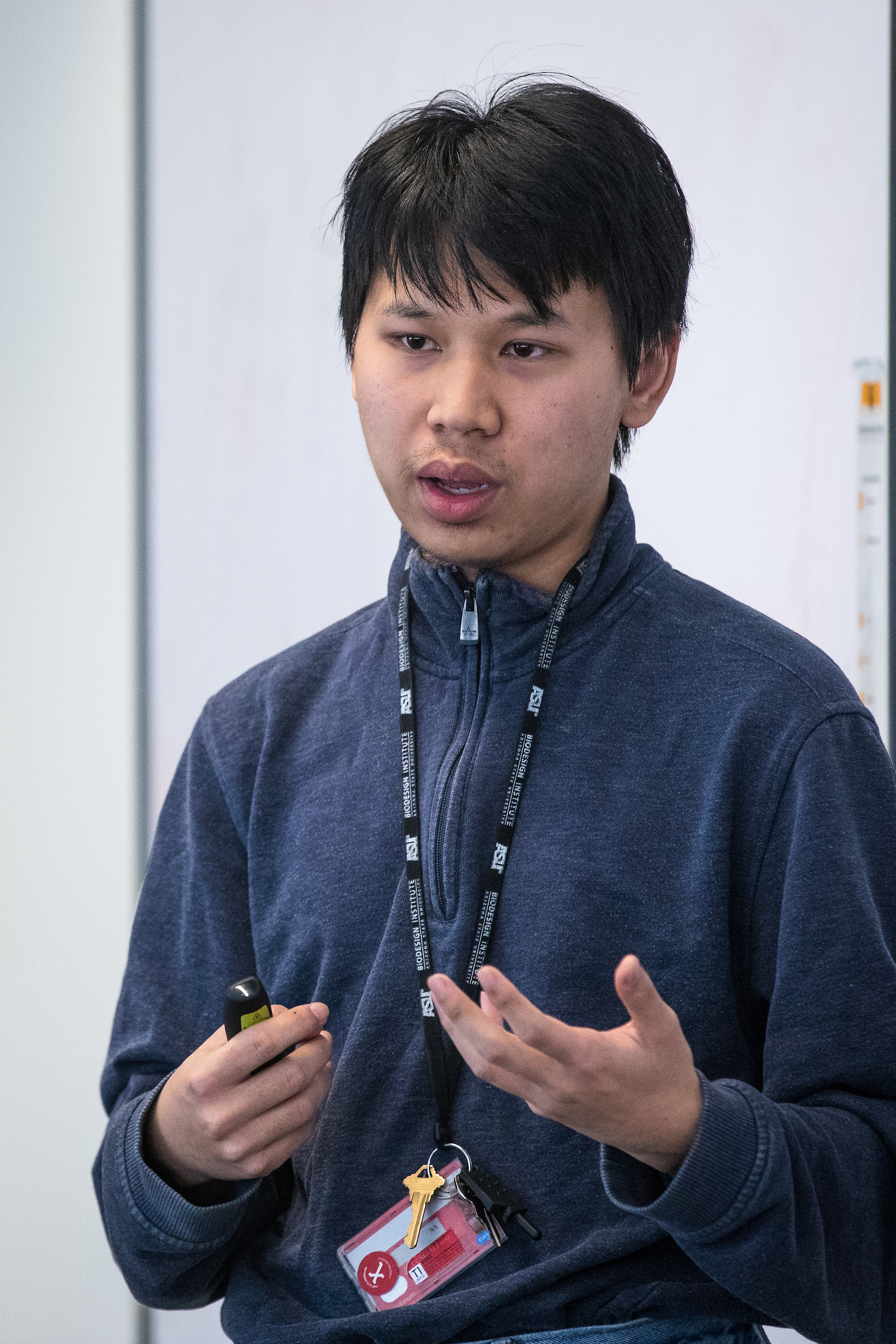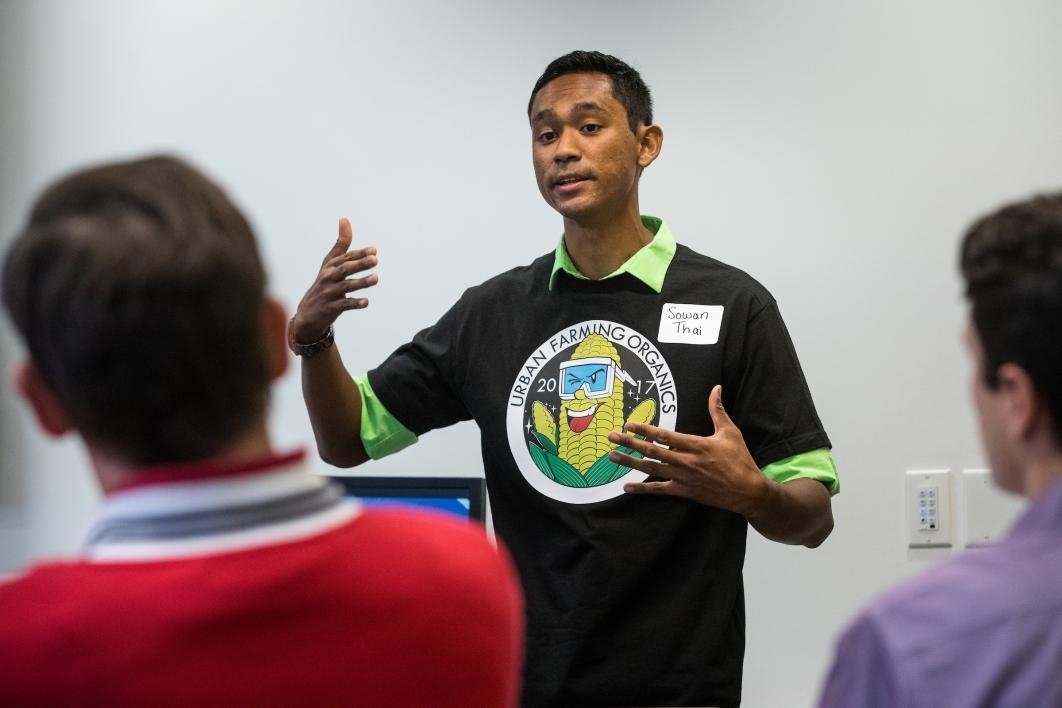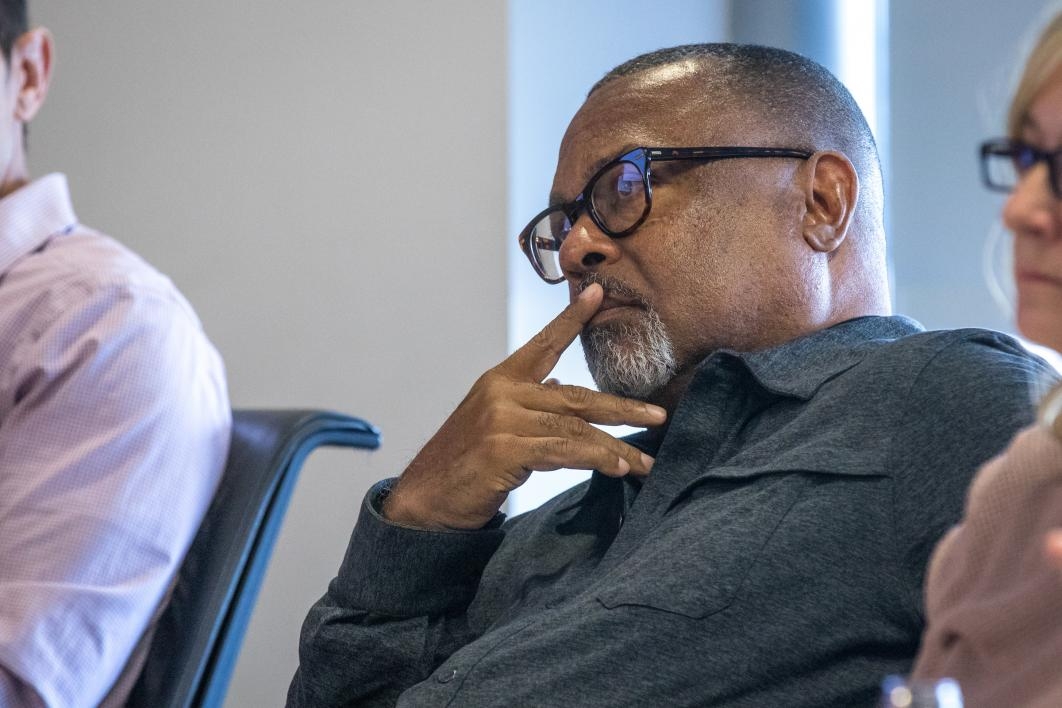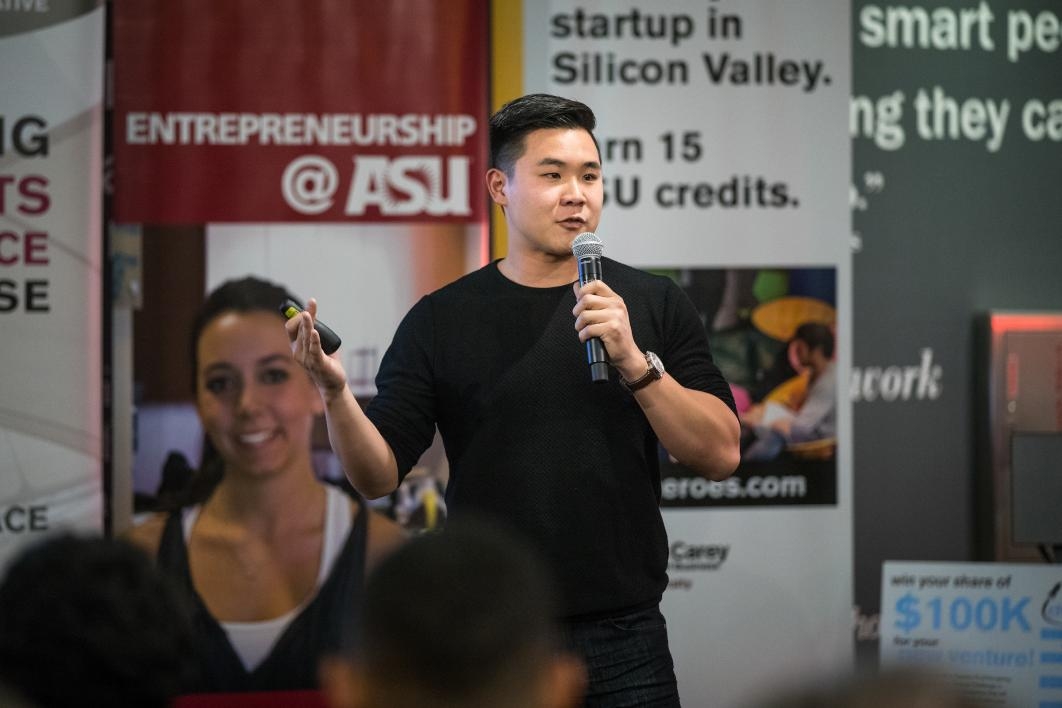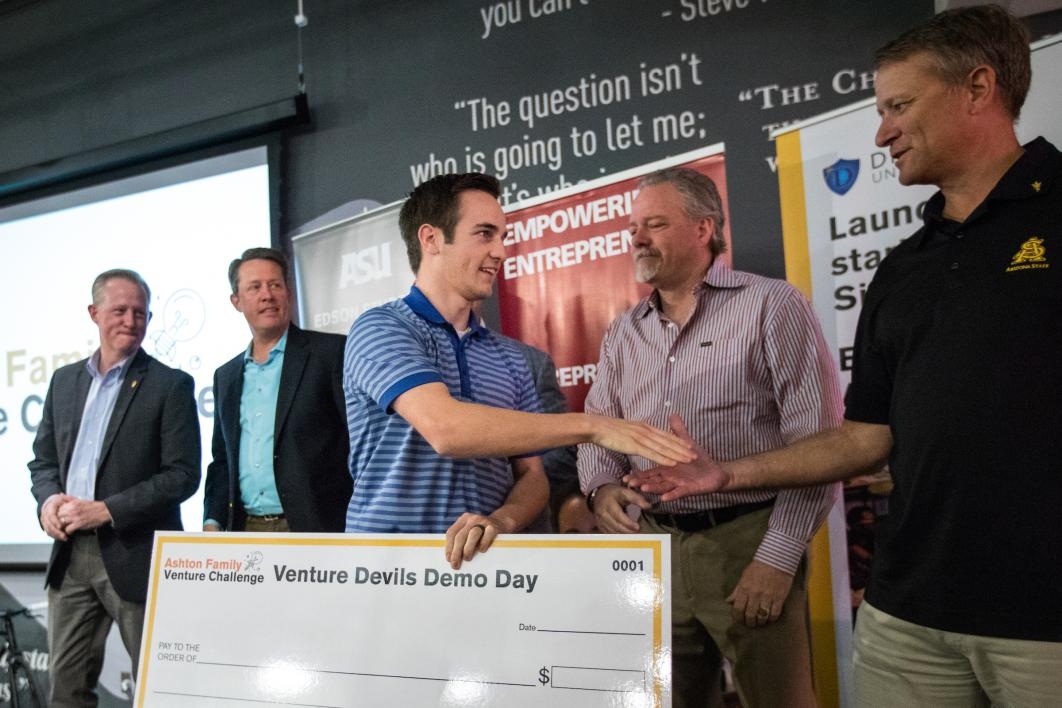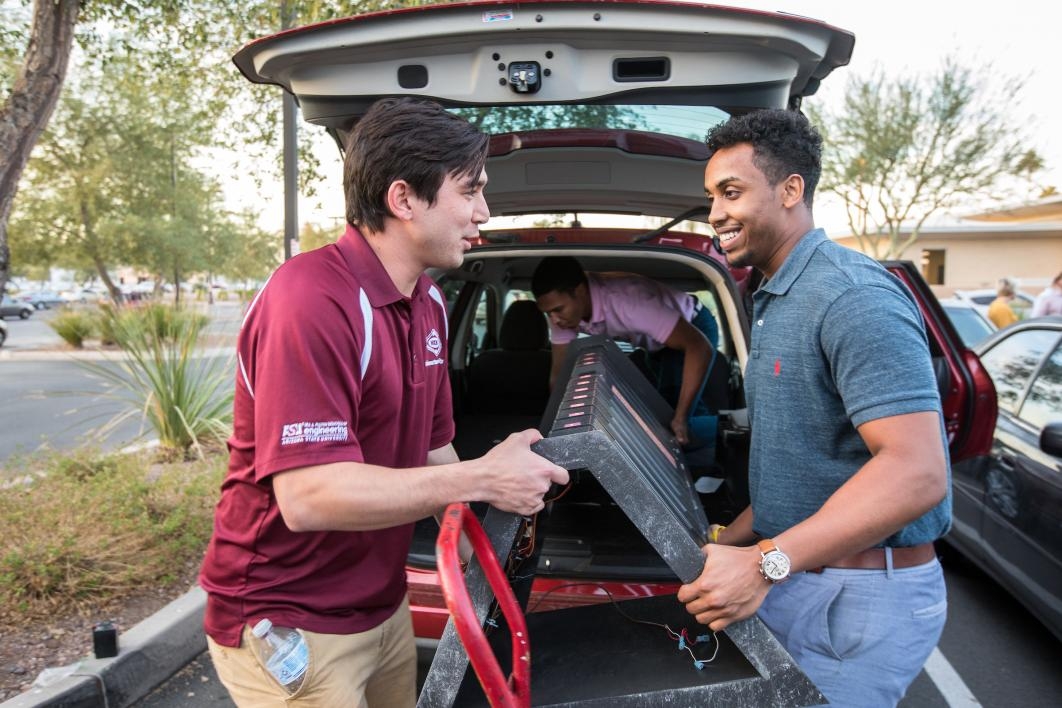Every entrepreneur wants to make money, but essentially what they’re working to create is a better life for humanity.
Student entrepreneurs at Arizona State University have invented software that tracks when people are in a mental health crisis, a game to help ease childhood anxiety, an innovative pool security monitor and an app that finds nearby parking spaces.
Those were among the two dozen ASU-affiliated startups that won more than $250,000 in investment funding at the Demo Day entrepreneurship competition on Friday. The projects are part of Venture Devils, a program in the Office of Entrepreneurship + Innovation at ASU that provides space, mentorship and access to funding to students, faculty, staff or community members. Nearly 100 ASU-affiliated teams pitched their ventures to a panel of judges at the daylong event, held at SkySong in Scottsdale.
Many of the ventures represent years of hard work.
“I’ve spent the last seven years working on this project as part of my PhD training,” said Ryan Stoll, co-founder of Compass for Courage, one of the big winners at Demo Day. His team won $22,500 in investment funding.
“It takes a lot to get into this market — a lot of expertise.”
Compass for Courage makes an interactive curriculum for children that uses board games and role-playing to help them learn skills to overcome anxiety. Stoll, a doctoral candidate in clinical psychology at ASU, co-founded the project with Armando Pina, an associate professor in the School of Psychology.
The program is already used in 26 Arizona schools as part of ongoing research, Stoll told the judges, and they have purchasing agreements with 80 more schools.
And their aspirations are bigger.
“Anxiety is just a start. We want our customers in the future to be able to create their own mental health curriculums that account for their unique needs and strengths,” Stoll said.
Pat Pataranutaporn, a junior in the School of Life Sciences, pitches for Humanity X Technologies at Demo Day. Photo by Charlie Leight/ASU Now
Demo Day combined several competitions that previously were held separately. One of them, the Pakis Social Entrepreneurship Challenge, gave out $7,500 to three ventures that the judges believed would benefit their communities: Compass for Courage; Hygiea, which created a waste-management technology; and Humanity X Technologies, which makes ARKHumanity, a platform for real-time detection of social media messages that may predict suicidal thinking. Those three ventures will now get additional mentoring and will compete for the $27,000 grand prize from the Pakis Family Foundation, which will be awarded at the next Demo Day, on April 27.
Like Compass for Courage, some ventures won funding from more than one source at Demo Day, and the prizes varied. The eSeed Challenge gave grants of $1,000 to a dozen teams, while the Edson Student Entrepreneur Initiative awarded nine prizesThe $10,000 winners were Curio, which makes experiential learning technology, and Urban Farming Organics, a nonprofit that will turn vacant land into organic community gardens. The $15,000 winners were Compass for Courage; Aquaponos, a hydroponic-gardening system; ArmsReach Industries, which makes space-saving organizational products; Halen, which makes Pool Sense, a pool-monitoring technology; Fellman Watch Co., which makes wristwatches; Pursuit Health Technologies, which makes a cloud-based platform for personal trainers; and Billibars, a detachable handlebar system for bicycle storage. of $10,000 or $15,000.
One new funding source was the Global Sport Venture Challenge, a competition for sports-related businesses that’s funded by the Global Sport Institute, a new research and inquiry unit at ASU. Five teamsThe winners were Hoolest, which makes a device to ease performance anxiety; Billibars, a detachable handlebar system for bike storeage; Pursuit Health, which created a cloud technology for fitness trainers; Power House Foods, a healthy-foods catering system; and Trestle Automation, a solar-powered skateboard-storage rack. won $1,000 each, plus mentorship and the chance to compete for the $5,000 grand prize in April.
Brent Sebold, executive director of venture development at Entrepreneurship + Innovation at ASU, said the Global Sport Venture Challenge makes sense for ASU’s entrepreneurs because “I brag that the 600 student founders are synonymous to the 600 student-athletes we have at ASU. ..."
Many of the entrepreneurs became passionate about their ideas because of their own personal journeys. One of the sport-challenge winners, Miguel Carrillo, weighed 385 pounds a decade ago and lost nearly 200 pounds through healthy eating and working out. His venture, Power House Foods, will serve healthy meals to gym members. He’ll spend his $1,000 prize on catering equipment to start his business, eventually scaling up to a food truck and a restaurant.
“I’ve already proven myself to my friends, family and loved ones,” said Carrillo, who is a senior majoring in business entrepreneurship.
ASU’s students will get to try out one of the winning products — a solar-powered skateboard rack. Trestle Automation, a team of five engineering and computer science students and alumni, created a new type of skateboard storage that doesn’t require students to carry around a padlock. The device, which will be placed near the Memorial Union on the Tempe campus next spring, uses students’ Sun Cards to activate the locking mechanism.
“The main issue is that a lot of students just forget their locks and that makes the racks useless,” said Tarek Salama, a senior in computer science. “Plus students are always late to class. But we have to carry our cards.”
The team will use the funding to tweak and weatherproof their prototype, which they hope to sell for $2,500 to universities.
Demo Day also was a celebration of all of ASU’s entrepreneurs, past and present. ASU alum Keith Ryu talked to the group about his Silicon Valley startup, Fountain, an automated-hiring platform that has earned $11 million in investment funding. Ryu, who graduated in 2014, lived off his ASU venture funding while he launched his company in San Francisco. He described his tough first year, which involved endless rejection, a technical consultant who didn’t respond when the website crashed, a lawsuit and the entrepreneurial equivalent of couch-surfing from office to office.
“I was helping them to take out the trash and stuff,” he said. “But that helped me see what a startup looked like.”
He also learned how to bluff.
“It was funny to see our perception of money,” he said. “We started asking for $40,000 but no one was interested, so then we upped it to $100,000 and we got a lot more interest.”
Ryu said that when he was a student entrepreneur, he thought that ideas were the most important part of a startup.
“Then I realized that ideas are cheap and execution is everything,” he said.
“If you can’t believe in what you’re doing and put your back against the wall, the investors won’t take that risk.”
For details on ASU Venture Devils, click here.
Top photo: Mona Davis, an ASU alum, pitches her venture, Charity Auction Trades, a platform for nonprofit groups to raise more money, on Friday at SkySong in Scottsdale. She won a $1,000 grant from the eSeed Challenge. Photo by Charlie Leight/ASU Now
More Health and medicine

The science of sibling dynamics: Why we fight, how we relate and why it matters
We have Mother’s Day, Father’s Day and even Grandparents’ Day. But siblings? Usually they get a hand-me-down sweatshirt and, with any luck, a lifetime of inside jokes.But actually, there is a…

New study seeks to combat national kidney shortage, improve availability for organ transplants
Chronic kidney disease affects one in seven adults in the United States. For two in 1,000 Americans, this disease will advance to kidney failure.End-stage renal failure has two primary…

New initiative aims to make nursing degrees more accessible
Isabella Koklys is graduating in December, so she won’t be one of the students using the Edson College of Nursing and Health Innovation's mobile simulation unit that was launched Wednesday at Arizona…



